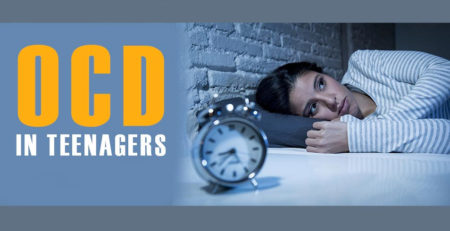From Teens to Adulthood: Managing ADHD for Lifelong Success
From Teens to Adulthood: Managing ADHD for Lifelong Success
Navigating the transition from adolescence to adulthood can be challenging, especially for teens with ADHD. As parents, understanding that ADHD often persists beyond childhood is crucial for providing adequate support. While it was once believed that children would naturally outgrow ADHD, modern research indicates that many continue to experience its effects well into adulthood. For those parenting teens with ADHD, it’s essential to recognize the importance of seeking professional ADHD management strategies to foster lifelong success. By equipping your teen with the right tools and resources, you can help them develop coping mechanisms that will enable them to thrive in adulthood.
Understanding ADHD in Teens
As parents, it’s crucial to understand how ADHD manifests in teenagers. This section explores the symptoms, impacts, and common misconceptions surrounding ADHD in adolescence.
Recognizing ADHD Symptoms
Attention Deficit Hyperactivity Disorder (ADHD) in teens can present differently than in younger children. The core symptoms of inattention, hyperactivity, and impulsivity often persist, but may manifest in new ways.
Inattention may manifest as difficulty focusing on schoolwork or forgetting essential tasks. Hyperactivity can manifest as feelings of restlessness or talking excessively. Impulsivity might lead to risky behaviors or difficulty in social situations.
It’s important to note that not all teens with ADHD will exhibit the same symptoms. Some individuals may struggle primarily with attention, while others may have more significant issues with hyperactivity or impulsivity. Recognizing these symptoms is the first step in providing appropriate support.
The Impact on Daily Life
ADHD can significantly affect a teenager’s daily life, influencing their academic performance, social relationships, and self-esteem.
In school, teens with ADHD might struggle to complete assignments, stay organized, or pay attention in class. This can lead to underachievement and frustration, despite having the intellectual capacity to succeed.
Socially, impulsivity and inattention can make it challenging to maintain friendships or navigate romantic relationships. Teens might interrupt conversations, miss social cues, or struggle with emotional regulation.
At home, ADHD can strain family relationships. Conflicts may arise over homework, chores, or following rules. Parents must understand that these challenges are part of the disorder, not a result of willful disobedience.
Common Misconceptions
Several misconceptions about ADHD can hinder proper understanding and support for teens with the condition.
Myth 1: ADHD is just a lack of willpower or laziness.
Reality: ADHD is a neurodevelopmental disorder with biological roots. It’s not a character flaw or a result of poor parenting.
Myth 2: Teens with ADHD can’t focus on anything.
Reality: Many teens with ADHD can hyperfocus on activities they find interesting, but struggle with tasks they find tedious or challenging.
Myth 3: ADHD only affects boys.
Reality: While ADHD is more commonly diagnosed in boys, it affects girls too. Girls often present with different symptoms, which can lead to underdiagnosis.
Understanding these realities can help parents and educators provide more effective support. For more information on debunking ADHD myths, visit the National Institute of Mental Health’s ADHD resource page.
Navigating ADHD into Adulthood
As teens with ADHD grow into adulthood, they face unique challenges. This section explores these transitions, lifelong management strategies, and support systems for adults with ADHD.
Transition Challenges
The transition from adolescence to adulthood can be particularly challenging for individuals with ADHD. This period often involves significant life changes, such as starting college, entering the workforce, or moving out of one’s parents’ home and living independently.
For many, the structured environment of high school gives way to more self-directed settings. This shift can exacerbate ADHD symptoms, as it requires greater self-management and organization skills.
Additionally, young adults may face new responsibilities, such as managing finances, maintaining a household, or balancing work and personal life. These tasks can be overwhelming for someone with ADHD, potentially leading to stress and anxiety.
Lifelong ADHD Management
ADHD is a lifelong condition that requires ongoing management. While symptoms may change over time, many adults continue to experience challenges related to attention, organization, and impulse control.
Effective management often involves a combination of strategies:
-
Medication: Many adults find that medication remains an effective way to manage their symptoms.
-
Therapy: Cognitive-behavioral therapy can help develop coping strategies and address co-existing conditions like anxiety or depression.
-
Lifestyle changes, including regular exercise, healthy sleep habits, and effective stress management techniques, can significantly improve ADHD symptoms.
Adults with ADHD need to work with healthcare professionals to develop a personalized management plan. This plan should be flexible and adaptable as needs change over time.
Support Systems for Adults
A strong support system is crucial for adults managing ADHD. This can include family, friends, mental health professionals, and ADHD coaches.
Support groups, both in-person and online, can provide valuable peer connections. These groups offer a space to share experiences, strategies, and emotional support with others who understand the challenges of living with ADHD.
In the workplace, adults with ADHD may benefit from accommodations such as flexible work hours, frequent breaks, or written instructions for complex tasks. Open communication with employers about ADHD-related needs can lead to a more supportive work environment.
For more information on adult ADHD management and support, refer to the [Kaiser Permanente ADHD Guide












